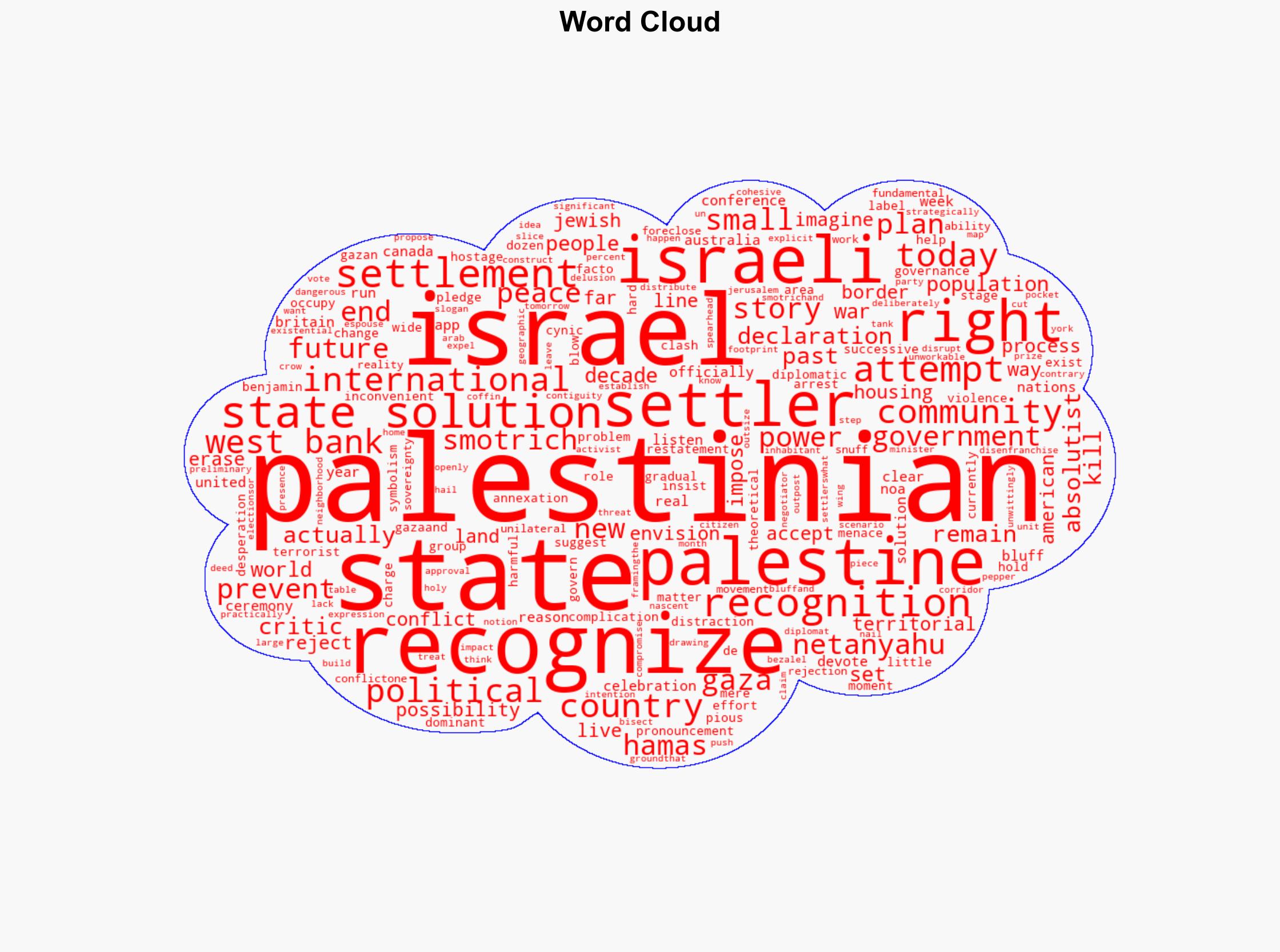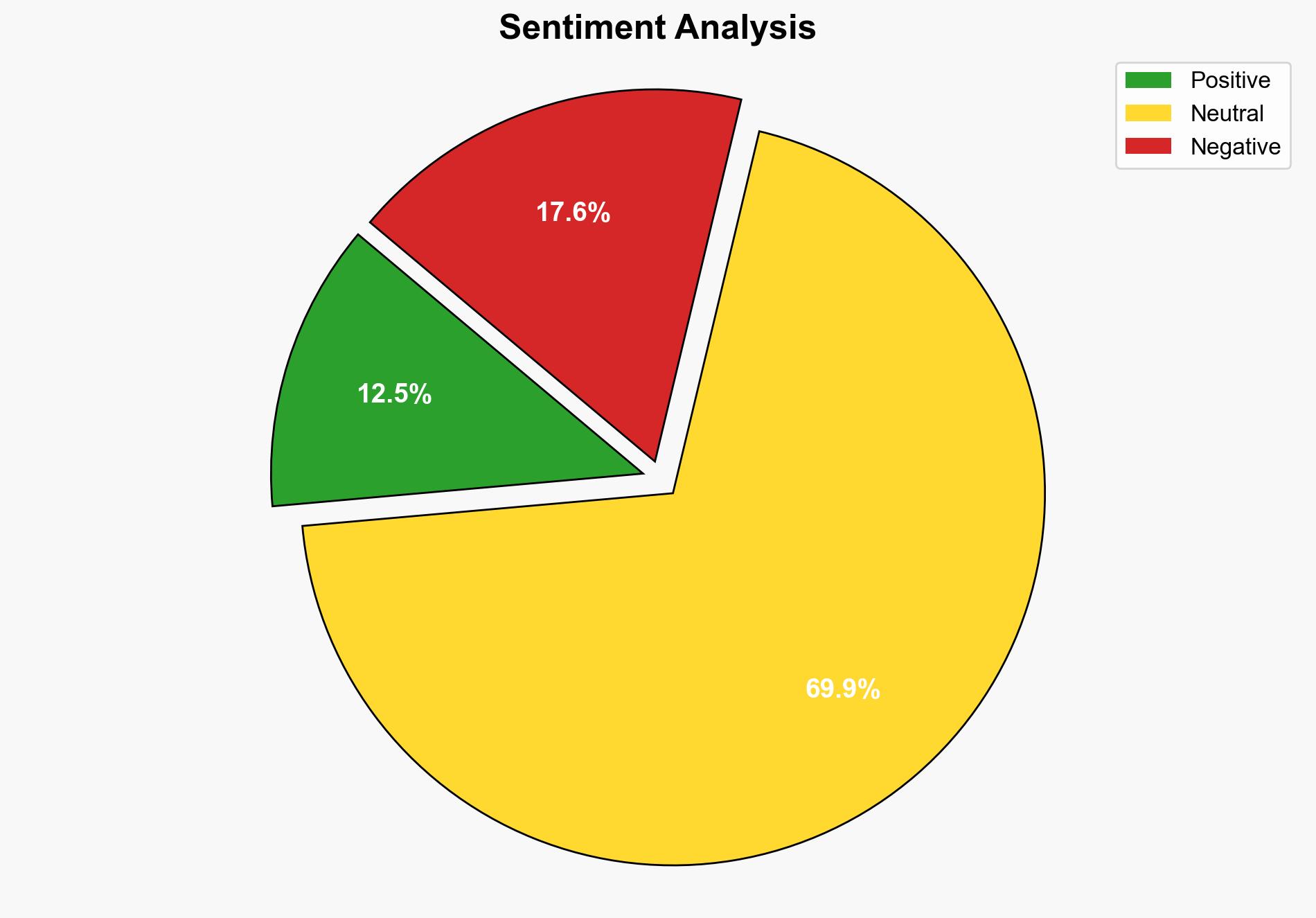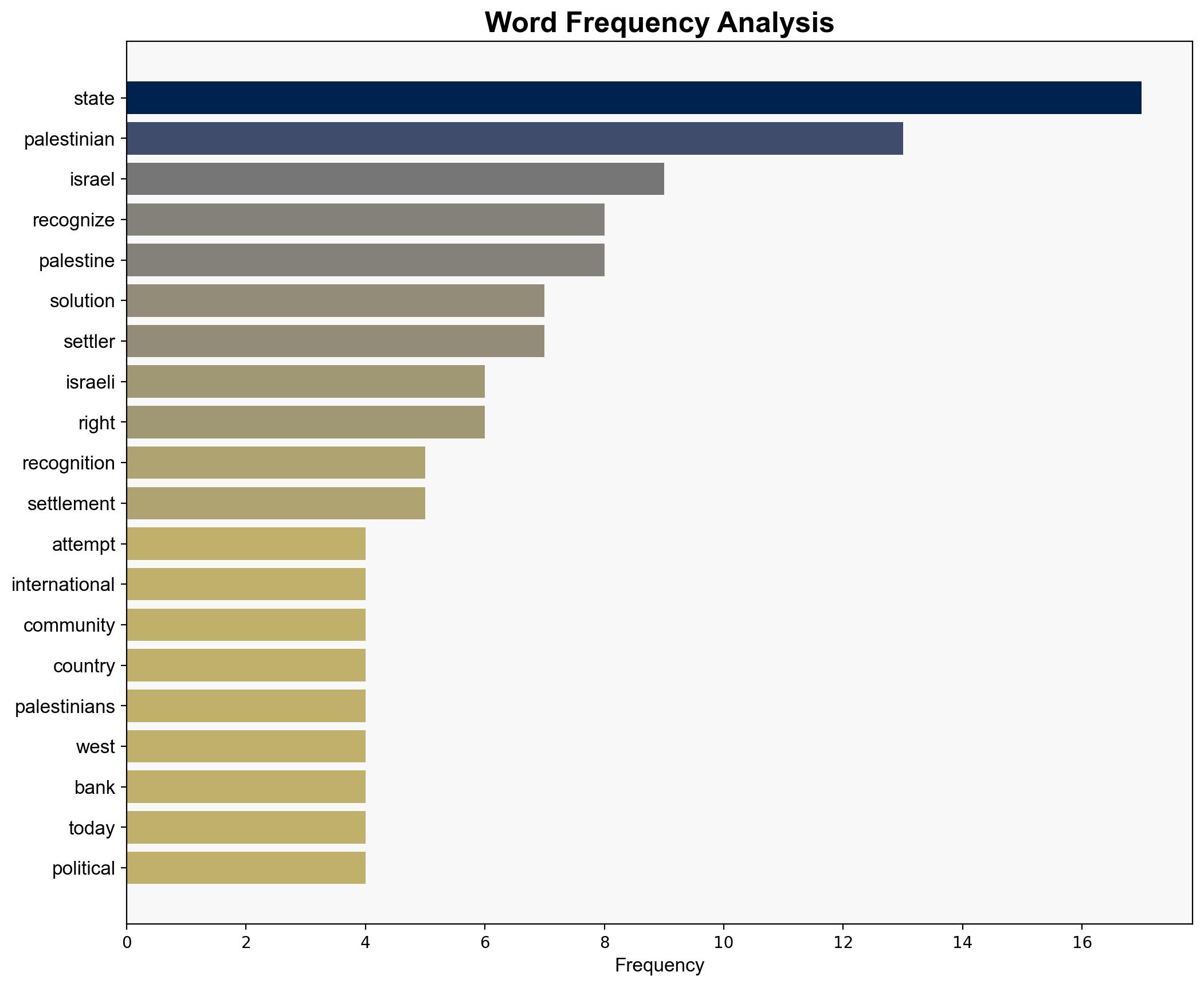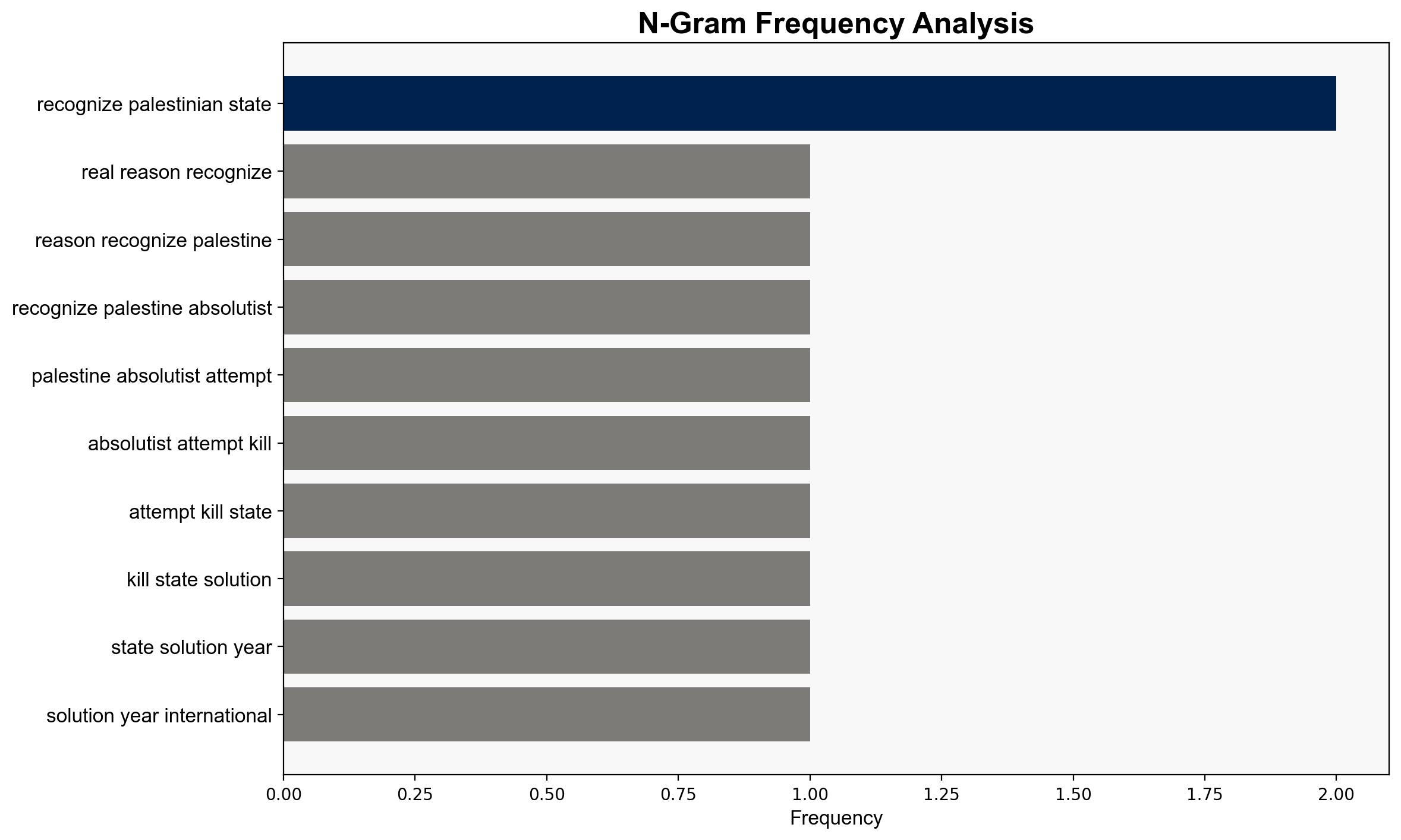The Real Reason to Recognize Palestine – The Atlantic
Published on: 2025-09-30
Intelligence Report: The Real Reason to Recognize Palestine – The Atlantic
1. BLUF (Bottom Line Up Front)
The most supported hypothesis is that international recognition of Palestine is a strategic maneuver to pressure Israel into reconsidering its settlement policies and to maintain the viability of a two-state solution. Confidence Level: Moderate. Recommended action includes diplomatic engagement to facilitate dialogue between involved parties and monitoring of settlement activities to assess compliance with international norms.
2. Competing Hypotheses
1. **Hypothesis A**: Recognition of Palestine is primarily symbolic, serving as a diplomatic gesture to reaffirm commitment to a two-state solution without immediate practical impact on the ground.
2. **Hypothesis B**: Recognition is a strategic move to counteract Israeli settlement expansion and to pressure Israel into negotiations by altering the diplomatic landscape.
Using ACH 2.0, Hypothesis B is better supported due to the explicit mention of international recognition as a rejection of current settlement policies and the strategic intent to influence future negotiations.
3. Key Assumptions and Red Flags
– **Assumptions**: Recognition will influence Israeli policy; international consensus can be maintained.
– **Red Flags**: Potential underestimation of Israeli domestic politics and settler influence; lack of immediate enforcement mechanisms.
– **Blind Spots**: The role of non-state actors like Hamas and their impact on the peace process.
4. Implications and Strategic Risks
– **Geopolitical**: Increased tensions between Israel and recognizing countries; potential for diplomatic isolation of Israel.
– **Psychological**: Heightened expectations among Palestinians, risking unrest if tangible progress is not achieved.
– **Cascading Threats**: Escalation of violence in response to perceived threats to settlement security.
5. Recommendations and Outlook
- Engage in multilateral diplomacy to facilitate dialogue and reduce tensions.
- Monitor settlement activities and support initiatives that promote coexistence.
- Scenario Projections:
- Best: Successful negotiations lead to a renewed peace process.
- Worst: Increased violence and diplomatic fallout.
- Most Likely: Continued stalemate with periodic escalations.
6. Key Individuals and Entities
– Benjamin Netanyahu
– Bezalel Smotrich
– Hamas
7. Thematic Tags
national security threats, geopolitical strategy, Middle East peace process, international diplomacy





